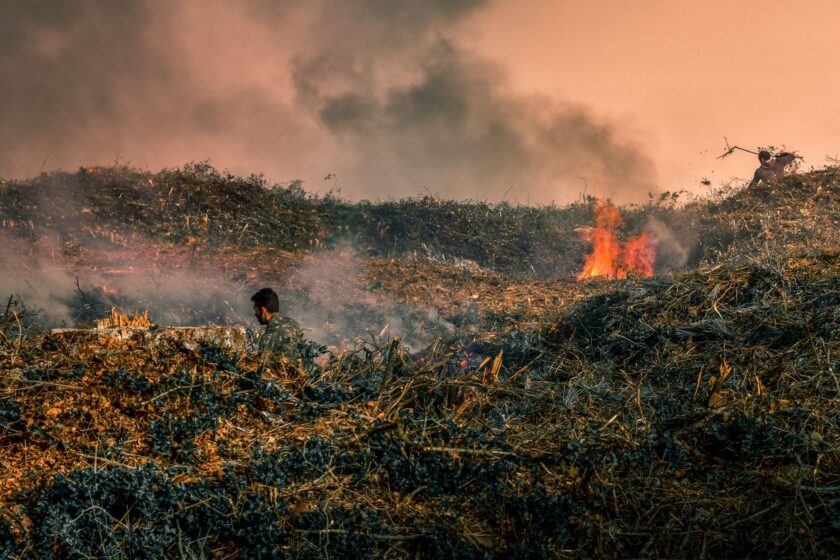The Amazon rainforest has been called the lungs of the planet. But in fact, it is the planet’s heart as it modulates the entire global climate system. It provides the rainfall and feeds the river systems across the South American continent that supply the fresh water for its farms and cities. The Amazon influences rainfall way beyond its South American borders, even to the North American continents Pacific Northwest. It is home to about one-third of the world’s known terrestrial plants, animals, and insects and contains twenty percent of all of the globes freshwater. The Amazon is the planets’ largest tropical habitat, bigger than the contiguous forty-eight US states, and exceeds the size of the tropical forests in Asia, and the Congo in Africa. The Amazon is shared by eight South American countries with the largest portion, sixty-six percent, in Brazil.
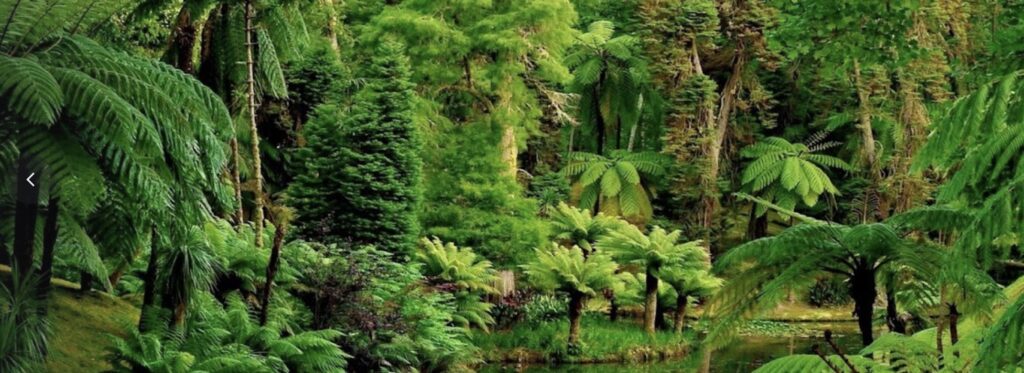
Though we think of the Amazon as the planets lungs and the biggest producer of the planets’ oxygen, this is a common misconception. Most of the world’s life-sustaining oxygen, between fifty and eighty percent, is produced by photosynthesis from plants in the oceans, mainly phytoplankton, the tiny plants that float in the sunlit upper layers.
A critical function of the Amazon is its absorptive capacity as a carbon sink of the most prevalent greenhouse gases, carbon dioxide. As we strive to keep the planet’s atmosphere from heating above what climate scientists have warned is the dangerous level of 1.5 degrees Celsius, the Amazon’s absorption of human created emissions of carbon dioxide is critical if there is any hope of not exceeding that critical temperature. The hundreds of billions of trees in the Amazon, absorb about four percent of the world’s annual emission of carbon dioxide.
The Amazon forest is being destroyed, at a pace that has increased dramatically since the 1970s and has accelerated even more since the turn of the 21stCentury. Deforestation of the Amazon has reached seventeen percent of the entire forest, an area exceeding the combined area of Italy, Greece and Germany. The main causes are the intentional clearing of trees to create pastures for cattle ranches, for industrial agriculture, mainly soy plantations, logging, oil and gas wells, and the thousands of gold mines, many illegal, that utilize a process that discharges toxic mercury into the Amazon’s river systems.
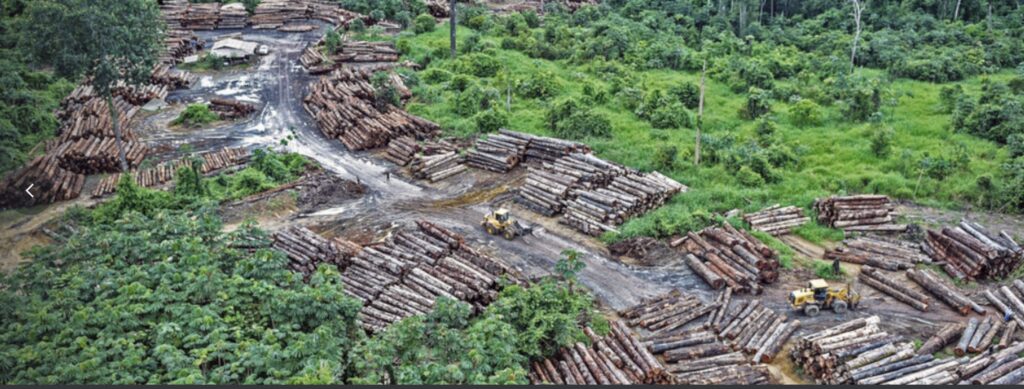
Scientists who study the Amazon, predict that if the Amazon’s deforestation reaches twenty to twenty-five percent, a level that is quickly approaching, the process of deforestation will become irreversible. The complex hydrology of the Amazon, where the trees emit water vapor into the atmosphere through a process known as evapotranspiration will be interrupted on such a large scale that the entire ecosystem will be compromised. Tropical forests like the Amazon recycle water from the surface to the troposphere, a process known as a biotic pump that defines their high rainfall. With a loss of large portions of the forest, the Amazon will lose this water recycling system, and it will be transformed into vast dry savannahs. It would be converted from a valuable carbon sink to a dangerous carbon source, as dying trees decompose. This is one of the reasons, that the protection of the Amazon as the world’s largest tropical rainforest is not just essential to the environmental health of South America, but a key global environmental issue.
The Amazon is home to more than 400 indigenous groups, comprising about 1.5 million people, who have lived in the vast tropical forest for more than ten thousand years, and are considered the best stewards to preserve it. The Amazon is their spiritual home and the source of their material sustenance. From 2000 to 2015, 11.5 percent of the Amazon was deforested outside of indigenous protected territories, but only 1.7 percent of land inside indigenous preserves was deforested during that same period.
Lula (Luiz Ignacio Lula da Silva) is retuning to the presidency of Brazil after he won the October 2022 runoff election, defeating president, Jair Bolsonaro. Lula announced at the November COP 27 Climate Conference in Egypt, that climate change will have the highest priority in his government and he will use all his efforts to fight deforestation in the Amazon.
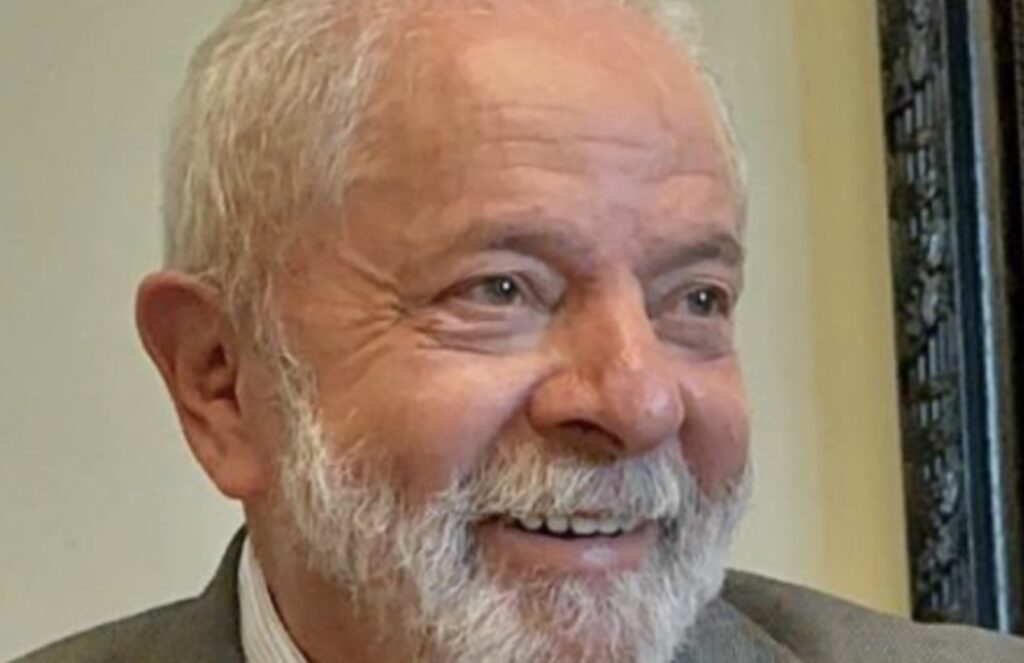
“There is no climate security for the world without a protected Amazon,” Lula said. “We will do whatever it takes to have zero deforestation and the degradation of our biomes.”
Deforestation of the Amazon hit a peak year in 2004 when 27,772 square kilometers were deforested, an area the size of Albania. During Lula’s first two presidential terms from 2003 to 2010, he introduced policies and legislation to sharply reduce the forest’s destruction, in particular the creation of conservation areas and indigenous reserves and stopping illegal logging. By 2010, 7,000 square kilometers was deforested that year, one-fourth the amount that was being lost annually when he first assumed the presidency in 2003. The levels of deforestation have remained relatively low through 2019.
Jair Bolsonaro was elected president in 2019 and he introduced policies to ramp up exploitation of the Amazon forest and promoted its clearing for cattle ranching, industrial scale agriculture and thousands of gold mines, many operating illegally on indigenous preserves. Bolsonaro stated publicly that the world’s criticism of his policies that promoted further deforestation of the Amazon, were unjustified, since Brazilia’s Amazon policy was a matter for Brazilia’s own national determination.
Under Bolsonaro, the rights of indigenous people to maintain their tribal land preserves have been blatantly violated. Bolsonaro dismantled the federal agencies created to protect the Amazon, indigenous people and their tribal lands. He halted enforcement of laws that prevent illegal logging, land grabbing and thousands of gold mines that encroach on indigenous territory.
During his 2018 campaign, Bolsonaro announced that the agency created to protect indigenous rights, (FUNAI), would be scythed.
The Brazilian government has transformed an agency charged with promoting and protecting indigenous rights into an agency that jeopardizes them, said Maria Laura Canineu, the Brazil director of Human Rights Watch.
During Lula’s first presidency, an agreement was reached with countries of northern Europe, that created an Amazon Fund that spent $1.2 billion from 2008 to 2018 to monitor and combat deforestation. The funds to protect the rainforest, mostly provided by Norway and Germany, were frozen in 2019 due to Bolsonaro’s aggressive policy to clear large portions of the forest for farms and ranches.
Deforestation under Bolsonaro soared, with a loss of 34,000 square kilometers, an area the size of the Netherlands, from August 2019 through July of 2021. Deforestation increased by fifty-two percent under Bolsonaro compared to the previous three years.
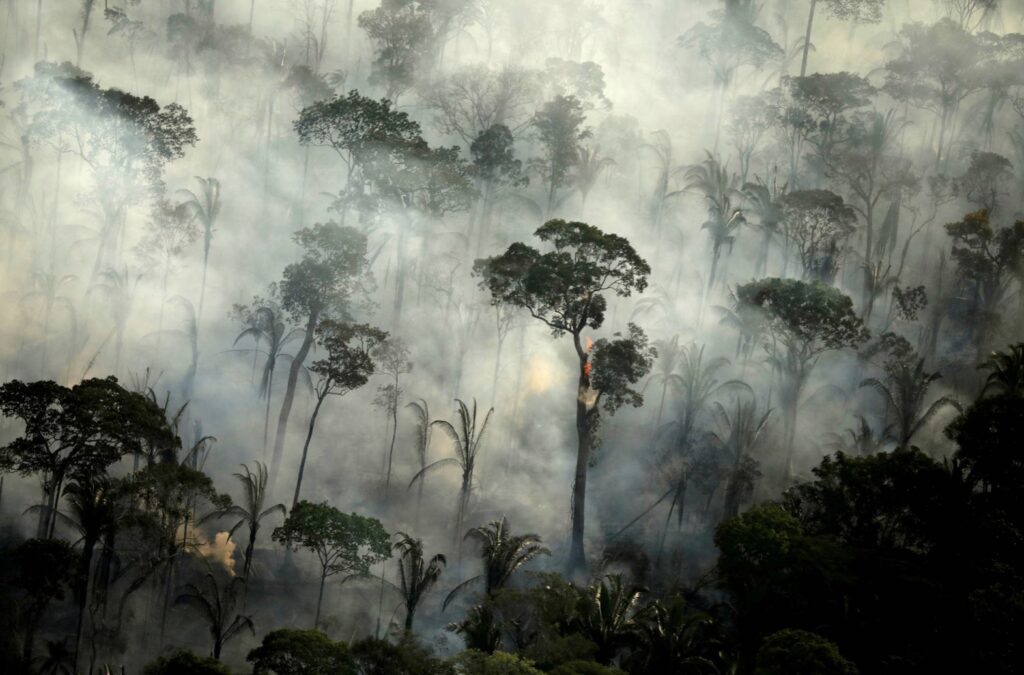
Lula’s promise to slow the Amazon rainforest’s further destruction and prevent it from reaching the dangerous tipping point of more than a twenty percent tree loss, is a huge hurdle for him to overcome. Opposition political parties to Lula presently hold a majority in the Brazilian legislature. They are closely aligned with the politically powerful agricultural and ranching industries that favor continued unregulated exploitation of the forest.
When Lula first assumed the presidency in 2003, he was faced with many daunting challenges, not only the destruction of the Amazon rainforest, but severe poverty that was prevalent, particularly in Brazilia’s impoverished tropical northeast region. Under Lula’s presidency, he introduced programs to lift twenty million Brazilians out of poverty, introduced a literacy campaign, allowed broader access to schools and universities, made healthcare available to millions and reduced infant mortality and child labor.
Hopefully Lula can achieve similar success in his present term, not only improving the lives of Brazilians but preserving the most important tropical rainforest on the planet.
The Amazon Fund presently has $585 million that can be used to restore the programs that protect the forest. The secretary of the Climate Observatory, an umbrella group of 65 Brazilian green non-governmental organizations, recently announced that the Fund can now be used to restore the environmental governance that Bolsonaro dismantled and be used to fund field operations by local and federal police to fight environmental crime like illegal logging and mining.
Brent Probinsky, the Climate Guru, is a lawyer and environmental writer and activist. He has traveled extensively throughout Brazil since the 1980s. He holds a masters degree in Latin American Studies from the University of Florida.
